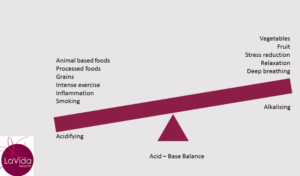Cognitive decline is a scary thought but like most illnesses, the sooner you start to address it, the better your likely outcomes.
No one likes the concept of “losing your marbles”…not being able to remember names and faces or how to do simple tasks. Perhaps having to give up work or stop driving your car. The resultant loss of independence is not something most of us want to contemplate. But the statistics on mild cognitive impairment (or its more serious form, Alzheimer’s disease) really should cause us to sit up and take notice.
The incidence of Alzheimer’s disease (AD) is growing at a rapid rate and is expected to double every 20 years. It affects more women than men (approximately 2:1 ratio). And, it is the greatest cause of disability in Australians over 65 years of age. According to Professor Dale Bredesen (a leading researcher into cognitive decline), it is now more likely that women will develop AD than breast cancer.
Research in this area is growing at a rapid rate. We now know a lot more about brain health. There is research into the causes and risk factors of AD. Encouragingly, there is emerging information on the positive things that show great promise for reducing risk and even potentially reversing or slowing cognitive decline. (The old belief was that we just continue to lose brain cells as we age but now we understand that the brain has plasticity and has the potential to remodel and repair).
“Alzheimer’s disease is thought to be 5-10% genetic and 90-95% lifestyle.”
Assoc. Professor Ross Grant
ACNEM conference 2017
Risk factors for developing cognitive impairment as you age
The list of possible factors which can increase your risk of AD is long and subject to change as we learn more. However, we are now confident that it includes the following:
- Genetics – some genetic markers (eg variants in the ApoE gene) have been identified as associated with an increased risk. But it is important to note that your genes are influenced by diet and lifestyle. And it should be noted that over 50% of people with variants of the ApoE gene live well into their 90s.
Lifestyle factors
- Head trauma or concussions
- Poor sleep – both difficulty falling asleep (sleep latency) and poor or insufficient sleep result in increased brain atrophy and a build-up of waste (sleep is when the “garbage collectors” do their best work)
- Exposure to toxins such as air pollution, illicit drugs, biotoxins, mould or heavy metals
- Smoking
- Sedentary lifestyle
- Prolonged periods of stress
- Lack of social interaction
- Lack of mental stimulation
Dietary factors
- A diet high in sugar, saturated fats, and refined carbohydrates and low in key nutrients (especially vitamins B12, folate and omega-3 fatty acids)
- A diet containing Advanced Glycation End Products (“AGEs”) which form in foods cooked at high temperature (think fried food, food cooked over flame or food which is “browned”)
- Alcohol intake – especially if greater than 1 standard drink/day. (It has been shown that within 10 minutes of having a blood alcohol reading of 0.05, brain damage occurs which may not fully repair)
Health conditions
- Being overweight
- High cholesterol
- Chronic high blood pressure
- Low vitamin D levels
- Poor blood sugar regulation (i.e. poorly managed diabetes or insulin resistance)
- Leaky gut – permitting the unwanted movement of certain molecules into the bloodstream
- Infections and immune dysfunction
What do you notice about all of these?
With the exception of your genetics, every one of these factors is within your control.

Prevention is key…start now!
Practical steps you can take to keep your brain healthy as you age
While the above list of risk factors might be a bit discouraging (especially if you can currently tick a few of them as applying to you), there are numerous positive messages coming out of research into cognitive decline as well.
When you look through the following list you will see that many of them are not new. They apply to good health generally. But we now have specific research into the healthy brain to inform these recommendations.
Dietary tips for better brain health
- Increase your antioxidant-rich fruit and vegetables (unless you are one of the <5% of people who eat the recommended 2 serves of fruit and 5-6 serves of vegetables every day). Especially important are the blue/purple fruit and vegetables along with orange and yellows…..basically you want to “eat the rainbow” every day if possible.
- Boost your omega-3 fatty acids (aim for 2-3 serves of wild-caught oily fish per week) – those people with higher levels show less cognitive decline
- Keep your red meat intake to no more than 1-2 serves per week
- Keep dairy to 1-2 serves per day
- If you enjoy a tipple, keep it to a minimum and make it red wine
- Keep refined carbohydrates and sugar to a minimum
- Avoid fried, chared or overly browned foods
Lifestyle tips for better brain health
- Fasting for 12 hours overnight has been demonstrated to increase the body’s ability to maintain healthy cell turnover
- Aim for 8 hours of good sleep per night (to help with the removal of waste, reduction in brain atrophy and blood sugar regulation)
- Exercise for 30-60 minutes per day (it doesn’t have to be strenuous) to help with waste removal and increase the benefits gained from sleep
- Engage your brain – do puzzles, solve problems, continue to learn (maybe a language, musical instrument or new skill), seek out new experiences
- Practice “single-tasking” instead of multi-tasking (multi-tasking has been shown to result in increased mild forgetfulness)
- Reduce stress – eliminate the stressors or practice stress reduction (even 5 minutes of meditation has been shown to reduce inflammatory markers)
- Maintain social networks (and not just online) – engage, discuss, laugh, share
More tips for better brain health
As I said earlier, getting in early to pick up things before they develop is a smart thing to do. So, consider the following:
- Know your numbers – cholesterol, fasting insulin, fasting blood glucose, hsCRP, albumin/globulin ratio, B12/folate, ferritin waist/hip ratio and blood pressure are good places to start. Get baseline assessments and monitor trends over time.
- Address any underlying illnesses or health conditions
- Consider targeted nutritional and herbal supplements to support nutritional vulnerabilities and to aid in the management of underlying causes of disease, inflammation and metabolic dysfunction.
The list of things you can do is long and will really depend on your individual health and risk factors. You can make a good start by following the steps above but to maximise your health. If you are struggling with any of them, work with a naturopath or healthcare provider trained in functional medicine. We can help you understand your numbers, make a holistic assessment of your health and help you with the best supplements at the right dose and at the right time.




